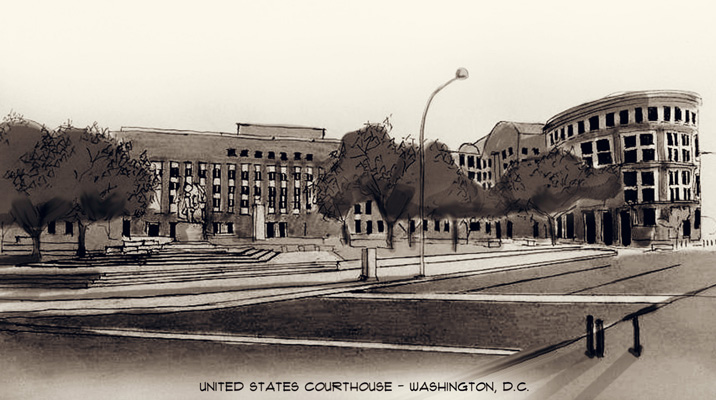The Court of Appeals for the D.C. Circuit recently issued an opinion clarifying the procedures for a wrongly-accused person to seek a certificate of innocence. Such a certificate is required if that person is to be compensated for undeserved prison time. The Court of Appeals suggested that federal judges in the District of Columbia should hold an evidentiary hearing. If a judge decides not to do so, she must explain why she has not.
The case was United States v. Gaskins, No. 20-3005. The Court of Appeals issued its decision on August 3, 2021. Judge Pillard wrote the opinion for the Court, which Chief Judge Srinivasan joined. Judge Henderson dissented.
What is a Certificate of Innocence?
Believe it or not, in the United States, innocent citizens are sometimes charged with crimes and even convicted of them. Those citizens might be eligible for compensation for each year of incarceration. To receive that compensation, however, it is not enough that the conviction is overturned. One must prove that one was truly innocent of the charged crime. Wrongly-convicted citizens who have proved their innocence (and other criteria) to a court receive a certificate of innocence.
Certificates of innocence are not commonly sought in the federal system. No attorney at this firm has ever sought one for a client and, according to the Court of Appeals, there is little case law on the subject. This decision is therefore interesting, because it clarifies the procedure for similar cases.
What Happened Before Appeal?
Alvin Gaskins had been convicted of drug conspiracy. The Court of Appeals had overturned his conviction on the grounds that there was no evidence of guilt. Mr. Gaskins argued, as he had at his trial, that he had worked for the conspiracy’s leader in a purely lawful capacity. He supported his position with three affidavits: one from the conspiracy’s leader, attesting that Mr. Gaskins had worked for his legitimate business, and two from customers of that business. He later added documents he had received through a FOIA request.
Mr. Gaskins requested an evidentiary hearing, which the government did not oppose. The district court denied Mr. Gaskins’ petition, without addressing his request for a hearing.
The Trial Alone Did Not Entitle Mr. Gaskins to a Certificate of Innocence.
There were only two decisions from the Court of Appeals addressing the standard required to obtain a certificate of innocence. There were few more from other federal appellate courts. The Court did not significantly add to them. It held, as it had before, that the government’s failure to prove guilt would rarely be enough to affirmatively prove innocence. That failure was not enough here.
Mr. Gaskins argued that the additional evidence he’d submitted was enough to prove his innocence. The Court did not rule on this argument, because the record was not complete. In theory, it could late find that the same evidence does prove innocence.
A Hearing is Generally Required When the Former Defendant Introduces Evidence
The Court of Appeals reversed the denial of Mr. Gaskins’ request for a hearing. The government had not opposed the motion, which probably made the Court’s decision easier, but the Court’s reasoning was broader. Citing decisions from other circuits, the Court suggested that a hearing is generally required when claimants introduce evidence, although it may not be when they rely solely on the record of their previous trial.
Stating that a court must explain its decisions, the Court of Appeals vacated the district court’s decision. It remanded for the district court to explain that decision or to hold an evidentiary hearing.
Conclusion
The Court’s decision suggests that in the District of Columbia, and possibly elsewhere in the country, applicants for a federal certificate of innocence will receive evidentiary hearings if they put forth evidence beyond that they adduced at trial. Because the remand was based on lack of explanation, however, the Court did not address when the denial of such a hearing would be appropriate. We might receive further guidance if the district court again denies Mr. Gaskins’ requested hearing.

